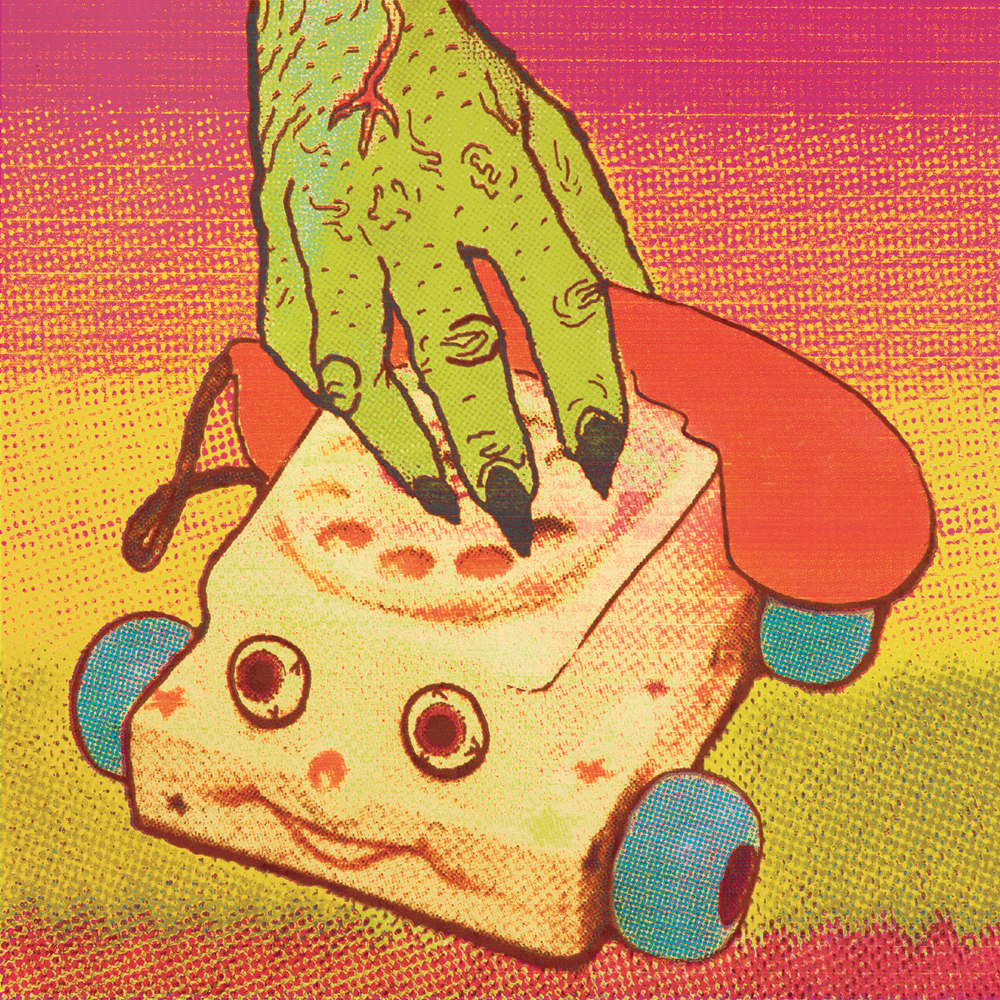John Dwyer keeps himself busy. Thee Oh Sees—which has more or less become his de-facto project—released two LPs and a demos collection in 2009, and though they put out just one record in 2010 (Warm Slime) it came a mere eight months after its predecessor, Dog Poison. That said, most of the groups from the new San Francisco garage rock scene (e.g. The Fresh & Onlys, Sic Alps, Ty Segall) are equally prolific—constantly breaking out their coveted, 80 pound, 1/4” multi-track Tascam 388s and cranking out 30 to 40 minutes worth of crunchy, mid-fi rock. On their newest record (which already has a follow-up slated for the fall), Castlemania, Thee Oh Sees continue to toy with the same jam band/60s psychedelic tendencies packed into tight, blown-out pop cuts that barely venture beyond the three minute mark.
To me Castlemania feels like one of those records with hardly any grey area: Either you’re going to be totally down with Dwyer and Co.’s blend of psychedelic folk and Cramps-style punk sprinkled with plenty of Zappa freak-outs; or, well, it’ll just be noise. More so, Dwyer’s got one of those voices—nasally to the point that it edges on either grating or hilariously subversive—that’ll make or break your opinion on the band. At times (read: listening to it during my morning commute, so I guess that’s my own fault), Castlemania can be tedious, a slogging jumble of atonality and distortion accented by blaring horn sections. Granted the record can feel like this whenever you listen to it, but there are undoubtedly some gems here. When Thee Oh Sees hit their mark, you’d be hard-pressed to find a band that makes music quite this catchy and unique.
Stability persists throughout Castlemania. Beneath the cacophony, steady up-and-down guitar strumming and/or straightforward, but authoritative, drumming anchor these tracks, lending them a much-needed sense of order and control. This grounding can make the jumbled mess of instruments and feedback that pop up on songs like “A Wall, A Century” and “Stinking Cloud” more palatable, and even exciting; “Stinking Cloud,” especially bursts with unbridled absurdity, and is one of the record’s most joyous tracks. The marching “Corrupted Coffin,” revels in its pulsing chorus horns and gleefully gloomy lyrics like “Burning brightly and unsightly / An homage to human kind. / But we’re dead, dead / Dead as I’ve already said.”
Thee Oh Sees are at their best on Castlemania when channeling 60s folk. The opening strumming and harmonica solo of “AA Warm Breeze” recalls Dylan’s “Subterranean Homesick Blues,” but the rest of the cut—over-exaggerated vocals and a dissonant bridge—is pure Thee Oh Sees. “Pleasure Blimp” sounds, appropriately, like it was recorded at the corner of Haight and Ashbury, while “Blood On The Deck” is as simple and poppy as Castlemania gets with an acoustic guitar progression, an drawn-out organ that courses underneath, and an electric guitar solo that pops and bounces then slinks and slides.
The cover of Castlemania is telling—the all too familiar plastic toy phone on wheels being grabbed by a puke-green monster’s hand. And really that’s what this record sounds like. On Castlemania Thee Oh Sees deliver a solid number of catchy, innocent pop tracks inf(l)ected with bouts of extreme discord. Highlight “If I Stay Too Long” stands out with its jangling guitar that starts steadily before the drums kick in with a shuffling rhythm that lends the track an innocence hardly heard elsewhere on the record, and half in a falsetto, Dwyer sings, “If I stay too long / It’s because I love you.” On the second phrase, two slightly staggered vocal tracks pile up on each other, as if to mimic those awkward moments where your words slip on your tongue and tumble out of your mouth. It’s a vulnerable moment, tucked in at the end of record that for the previous 30 minutes may seem to lack those qualities completely. But it’s worth giving Castlemania a few more chances, because beneath what feels like constant disharmony, is something quite refreshing.

